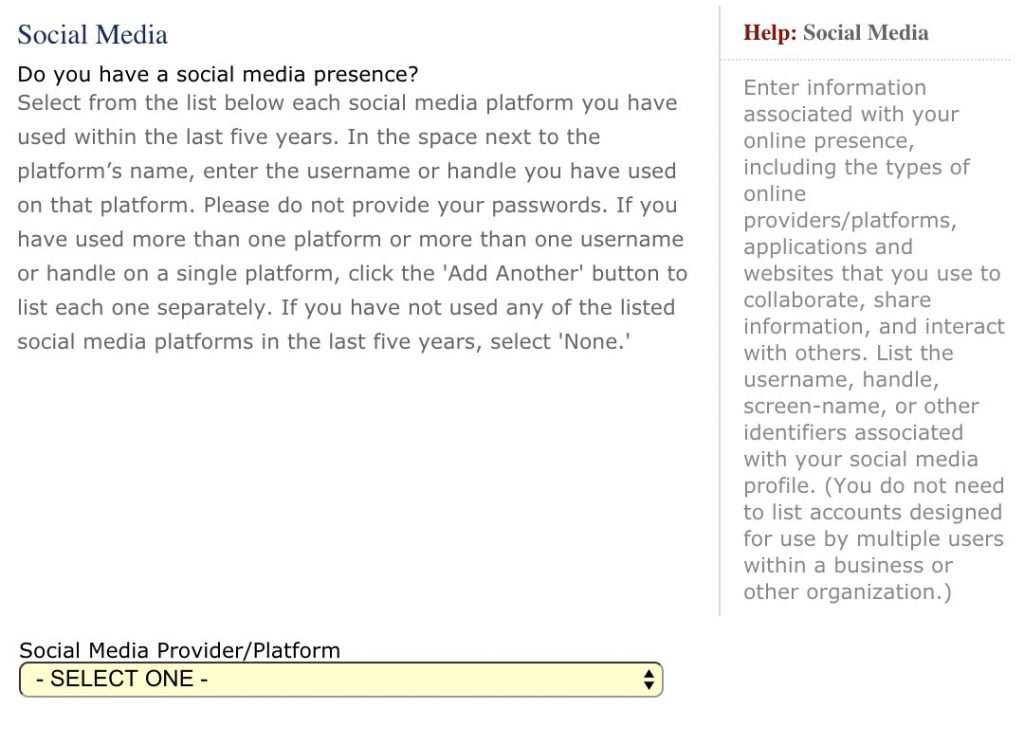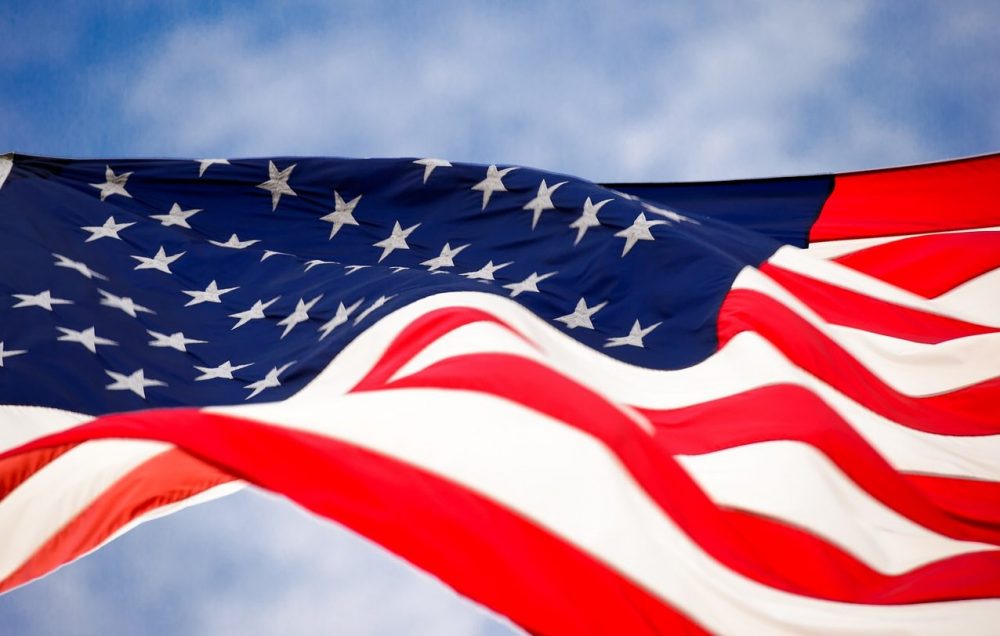US State department has implemented a new visa policy that requires all DS-160 non-Immigrant visa applicants to disclose social media accounts, email accounts and phone numbers used during the last five years
This is a part of new policy of stringent vetting process of some 15 million visa applicants. Certain diplomatic and official visa types are exempted from the social media requirements.
The New updated DS-160 Non-Immigrant online visa application requires any or all social media identifiers

All non immigrant and immigrant visa applicants will be required to answer these social media questions, except for applicants applying for the following types of non immigrant visas: A-1, A-2, C-2, C-3 (except attendants, servants, or personal employees of accredited officials), G-1, G-2, G-3, G-4, NATO-1, NATO-2, NATO-3, NATO-4, NATO-5, or NATO-6 visas.
The State department has updated non immigrant visa online application form(DS-160),the paperback-up version of the non immigrant visa application(DS-156),and the online immigrant visa applicationform(DS-260). The updated forms collect social media identifiers.These changes went into effect on May 31, 2019.
The social information will be used, as all information provided during a visa interview and on the visa application, to determine if the applicant is eligible for a visa under existing U.S. law. Collecting this additional information from visa applicants will strengthen our process for vetting applicants and confirming their identity
Confidentiality
The State Department limits its collection to information relevant to a visa adjudication.In accordance with U.S. law,information collected in the non immigrant or immigrant visa application or adjudication process is considered confidential and may be used only for certain purposes expressly authorized by law, including the formulation,amendment,administration,or enforcement of U.S. laws. The Department is also taking measures to ensure that information from U.S. persons that is inadvertently included in this collection is adequately protected in accordance with applicable privacy laws.
Social Media Accounts
US Visa applications are required to disclose all the below 19 social media accounts.
- Douban
- Flickr
- Google+
- Myspace
- Qzone (QQ)
- Sina Weibo
- Tencent Weibo
- Tumblr
- Twoo
- Vine
- Vkontakte (VK)
- Youku
- Youtube
DHS already asks optional social media information for ESTA (visa waiver program)
How CBP uses social media information?
According to CBP website, Information found in social media will enhance the vetting process and may be used to review ESTA applications to validate legitimate travel, adjudicate VWP ineligibility waivers, and identify potential threats. If you choose to answer these questions and an initial vetting by CBP indicates possible information of concern or a need to further validate information, a highly trained CBP officer will have timely visibility of the publicly available information on those platforms, consistent with the privacy settings the applicant has chosen to adopt for those platforms, along with other information and tools CBP officers regularly use in the performance of their duties.
For example, social media may be used to support or corroborate a traveler’s application information, which will help facilitate legitimate travel by providing an additional means to adjudicate issues related to relevant questions about identity, occupation, previous travel, and other factors. It may also be used to identify potential deception or fraud. Social media may help distinguish individuals of additional concern from those individuals whose information substantiates their eligibility for travel.
DHS will handle social media identifiers in the same manner as other information collected through ESTA. DHS has documented these procedures in the updated ESTA System of Records Notice (SORN) and Privacy Impact Assessment (PIA), which are available on the DHS website (http://www.dhs.gov/topic/privacy).
Data Collection
In 2017, The State Department issued a public consultation on seeking data collection of potential visa applicants.
The Department proposed requesting the following information, if not already included in an application, from a subset of visa applicants worldwide, in order to more rigorously evaluate applicants for terrorism, national security-related, or other visa ineligibilities:
- Travel history during the last fifteen years, including source of funding for travel;
- Address history during the last fifteen years;
- Employment history during the last fifteen years;
- All passport numbers and country of issuance held by the applicant;
- Names and dates of birth for all siblings;
- Name and dates of birth for all children;
- Names and dates of birth for all current and former spouses, or civil or domestic partners;
- Social media platforms and identifiers, also known as handles, used during the last five years; and
- Phone numbers and email addresses used during the last five years.
Visa Ban
Nationals of seven countries are currently subject to various travel restrictions contained in the Proclamation, as outlined in the following table, subject to exceptions and waivers set forth in the Proclamation.
| Country | Nonimmigrant Visas | Immigrant and Diversity Visas |
| Iran | No nonimmigrant visas except F, M, and J visas | No immigrant or diversity visas |
| Libya | No B-1, B-2, and B-1/B-2 visas | No immigrant or diversity visas |
| North Korea | No nonimmigrant visas | No immigrant or diversity visas |
| Somalia | No immigrant or diversity visas | |
| Syria | No nonimmigrant visas | No immigrant or diversity visas |
| Venezuela | No B-1, B-2 or B-1/B-2 visas of any kind for officials of the following government agencies Ministry of Interior, Justice, and Peace; the Administrative Service of Identification, Migration, and Immigration; the Corps of Scientific Investigations, Judicial and Criminal; the Bolivarian Intelligence Service; and the People’s Power Ministry of Foreign Affairs, and their immediate family members. | |
| Yemen | No B-1, B-2, and B-1/B-2 visas | No immigrant or diversity visas |





